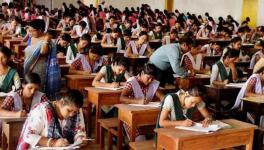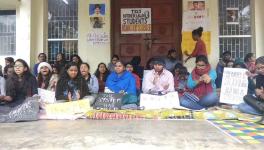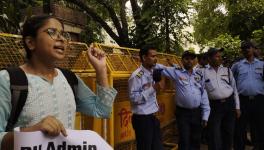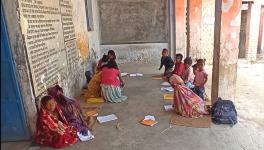Why Students Don’t Want to Return to College in Karnataka
Representational use only.
The Karnataka government has decided to reopen colleges in the state from 17 November. However, the Unlock 5 guidelines for reopening, which will remain in force until 30 November, have categorically empowered only the Department of Higher Education in the Ministry of Education to decide whether or not colleges should reopen, and when, after consultations with the Home Ministry.
Guidelines 1(ii) and 1(ii)(b) of Unlock 5 make it clear that the state government’s power to reopen higher educational institutions is essentially limited to reopening of universities for research (PhD) scholars and postgraduate students in the science and technology streams who require laboratory or experimental work. These guidelines are issued by the National Executive Committee under instruction from the National Disaster Management Authority, whose powers are conferred by section 10(2)(1) of the Disaster Management Act, 2005. Therefore, the guidelines have statutory force; and it would follow that the decision of the Karnataka government does not have the appropriate authority of law.
There are more reasons for concern. If colleges reopen, many students and their families will feel compelled to return to the classrooms. The consequences of doing so at this stage of the pandemic—when there are still over 3,500 daily positive cases emerging in the state—may be severe. In fact, Karnataka is one of the worst-affected states in the country and yet it is among the first to decide to reopen colleges.
Ostensibly, the decision to reopen colleges is voluntary, and students are to start attending only if they can get their guardian’s consent. The state government has also reassured that attendance will not be enforced. However, a “voluntary” attendance policy essentially means that the wealthy will continue to attend classes online, while the poor and marginalised will feel compelled to attend classes in person. This makes the decision to reopen at this juncture discriminatory, and especially harmful to students who belong to the lower socio-economic classes.
There are other ways in which the government could have helped all students continue with their education. First among the steps would be to provide the devices and internet access they require in order to attend online classes.
Recently, the Delhi High Court directed schools to provide the students from the Economically Weaker Section with gadgets and internet packages. The Kerala government has launched the “First Bell” initiative at an early stage of the pandemic as part of which classes are telecast to homes through local cable networks. It is steps like this that can ensure no student is left behind in terms of access to education in these uncertain times.
There is serious reason to worry that Indian states are not doing enough on this count: A 2018 Pew Research Centre survey of 27 countries and over 30,000 respondents, found that only 24% Indians reported a smartphone—the lowest in the world. The Pew report, which was released in 2019, also found a widening gender gap in who owns a cellphone. Gender did not play much of a role in smartphone ownership around the world, but Pew found India an “exception. “In India men (34%) are much more likely than women (15%) to own smartphones,” the report said. “This gap of 19 percentage points is 10 points wider than it was just five years ago,” it added, when 16% of men and 7% of women owned smartphones.
A nationwide survey conducted in 2017-18 by the National Statistical Office, on Household Social Consumption, also shows that only 10.7% of households had a computer while 18.8% households had internet facility in Karnataka. The percentage goes down to 2 and 8.3 respectively in rural Karnataka. While this is in line with the national percentage—10.7—of households that had a computer, and almost on par with the 23.8% households that had internet facility, the figures are not encouraging. It is here that the Karnataka government needs to focus attention, to ensure students can learn from home until the worst of the pandemic blows over.
Even more important is the need for the Karnataka government to understand why the guidelines provide for schools to reopen, but not colleges or other higher educational institutions. In the latter, physical reopening of classes would require students to travel between cities and states and share private accommodation or hostel facilities with their peers coming from different parts of the country. [It is estimated that around 15% of all Indian university-level students live away from their homes.]
The concern is that students living away from home would risk being exposed to the Novel Coronavirus, which causes the Covid-19 disease, more than day-boarding schoolchildren who return to the safety of their homes every day. If college-goers get infected, many would also not have access to the right healthcare services, nor even the home-based quarantine facilities or attention that most Covid-19 patients require.
It is these reasons that have propelled students from around the state to protest the reopening of colleges. Students and scholars have been quick to point out to the Karnataka authorities that Kerala has been able to provide internet access to 51% of rural households through a variety of sources (including 23% at home). According to some calculations, only 2% of rural Indian homes have access to their own internet connections. Students insist that the state government should make efforts in this direction, rather than ignore the lack of access and herd vulnerable students back into crowded facilities.
Further—if only the government would make efforts to provide all students access to devices at home—the older students would naturally find it easier to follow online classes because they have (it is presumed) sufficient exposure to technology, unlike school-going children. It is for this reason that the Guidelines insist on colleges reopening only if absolutely unavoidable, such as the need to hold practical classes. The state government must keep in mind the right to education cannot come at the cost of right to life—the challenge is undoubtedly to find a way to protect both.
The author is a student at Karnataka State Law University. The views are personal.
Get the latest reports & analysis with people's perspective on Protests, movements & deep analytical videos, discussions of the current affairs in your Telegram app. Subscribe to NewsClick's Telegram channel & get Real-Time updates on stories, as they get published on our website.























